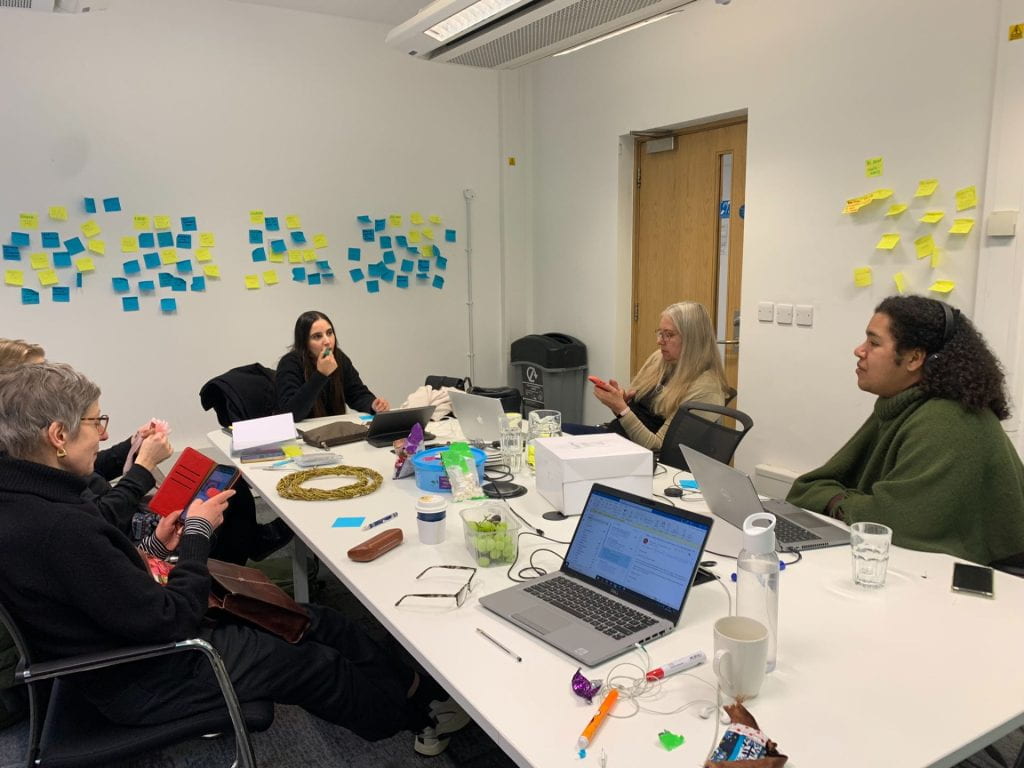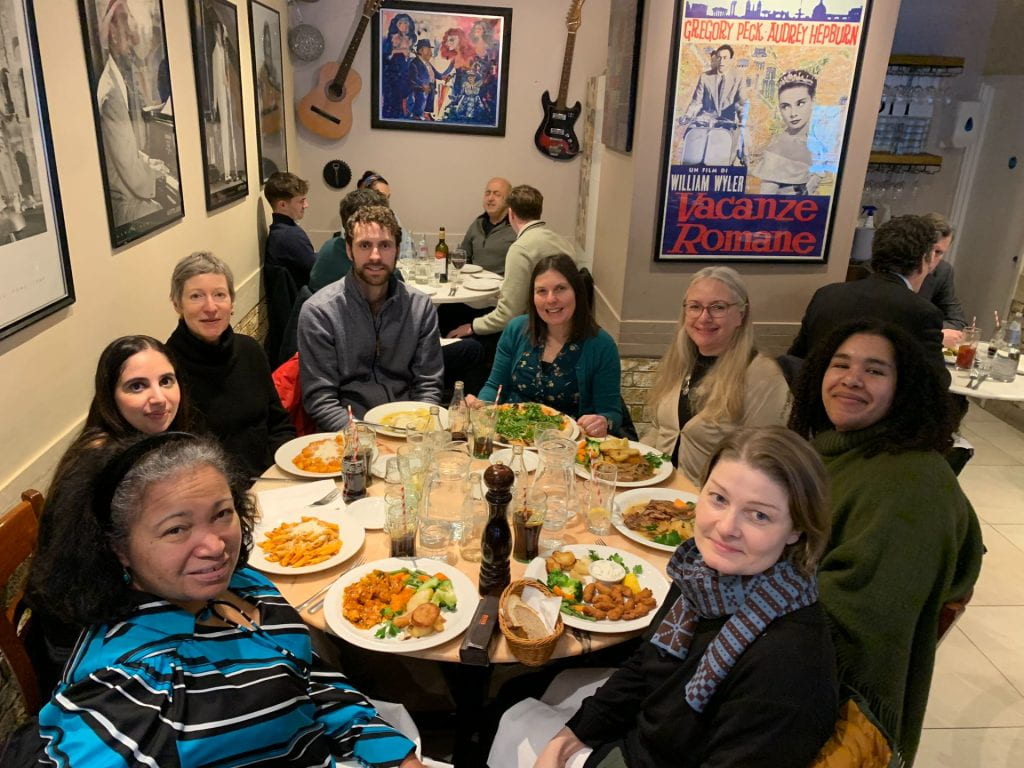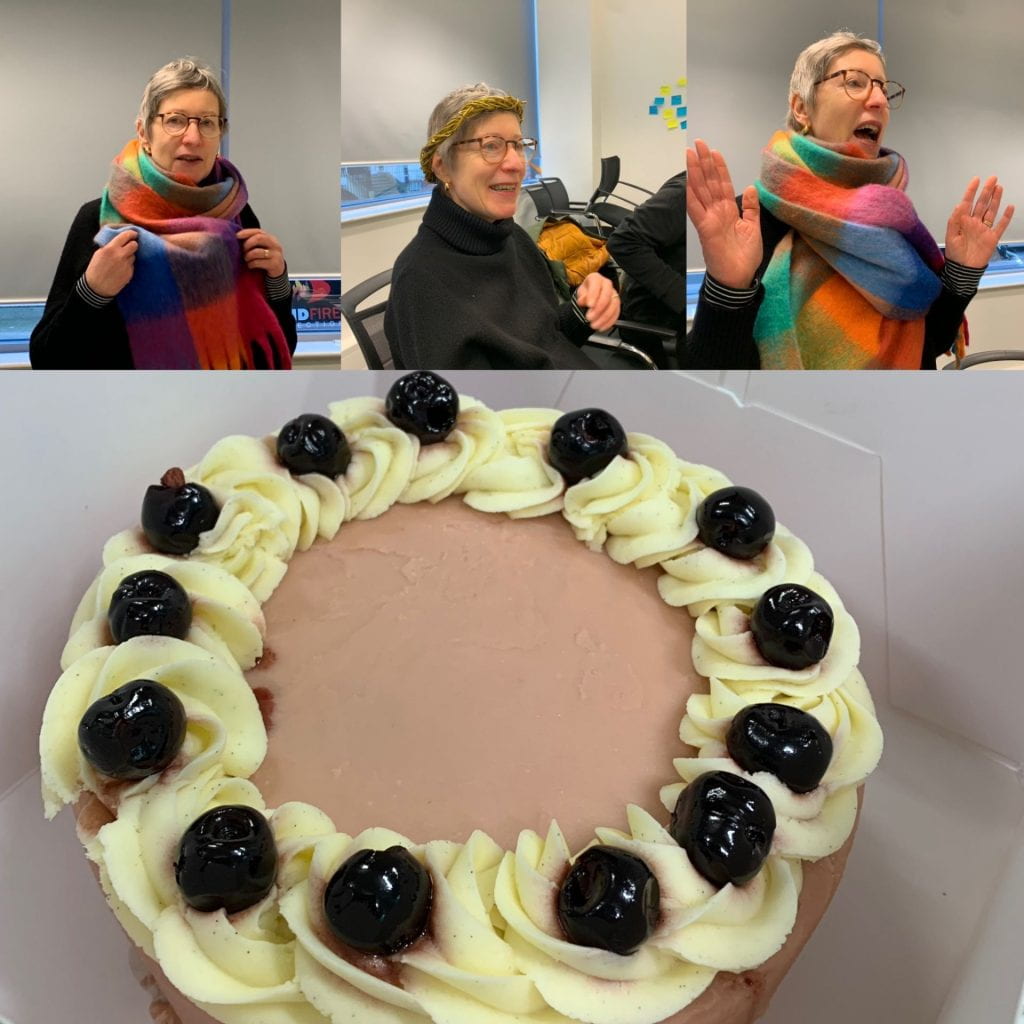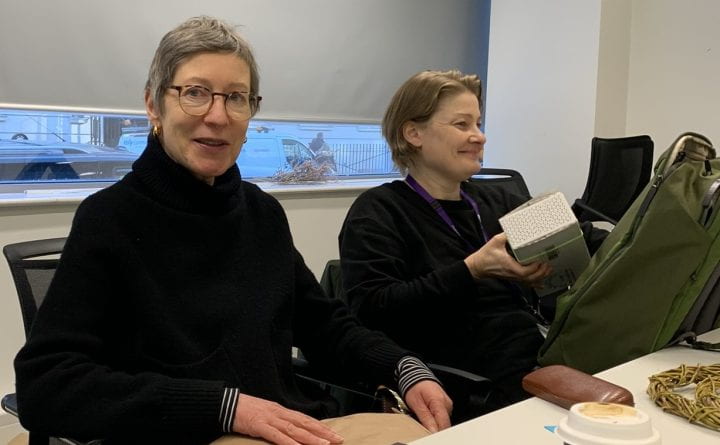The Digital Assessment Team have 6-monthly away days to reflect on past activities and long forward to the future. You can see reports from the July 2023 online event and our January 2023 day with the Central Assessment Team. Earlier this week we met in person to not only look at our work but also celebrate our team member Isobel Bowditch, who is off to pastures new (Strathclyde University).

We began the day with our usual Liked, Learned, Lacked and Longed for (or Long-term) retrospective exercise and came up with the following areas:
Liked – what worked well?
- The team – we really are an incredibly supportive team and have gained new team members (Amanda and Claudia) over the last 6 months who have added their amazing expertise to the collection.
- Collaborating with other people – for example with Digi-Ed colleagues, through the Optionality project, with HEDs and Arena, and with departments and faculties.
- Creation of some great resources including the Academic integrity course, the Wiseflow blueprints, the assessment matrix and technology enhanced feedback page and our contribution to the Generative AI hub.
- The move to self-support training – less training sessions, use of the dropins and effective use of the resources we have created. On the whole people seem happier in their use of Wiseflow – the IRDR/AUCL implementation is a great success story.
- Exploration / expansion in to different platforms – we have begun to extend out expertise to other tools and platforms (ones that UCL and ones that it may use in future ) and increased familiarity with Moodle assessment tools, Crowdmark, Cadmus, IPAC and others.
Lacked – what didn’t work so well
- Team direction – there is a lack of clarity over the team future, staff contracts, the assessment and feedback vision and other areas. Team members have left (John and Isobel) and this leaves the remaining team in a difficult position.
- Digital assessment advocacy – while the team actively advocates for a broader understanding of ‘digital assessment’ and its intersection with technology and pedagogy opportunities to contribute to strategic discussions and vision-setting in this domain remain limited.
- Work areas that haven’t been as successful include our efforts on Turnitin Draftcoach which unfortunately remains too buggy to use, both the lockdown browser and assessment futures work have been temporarily parked, and assessment redesign due to AI continues – which is an ongoing challenging area.
Learned – what would you do differently
- Utilise our HEDs/Arena partnership more – we need to find better ways to share our expertise on assessment futures though more appropriate channels like HEDs/Arena. Campaign for inclusion in meetings and initiatives with senior management (along with other FLTLs etc.)
- Better navigate the UCL structure – we need to better navigate the disconnects between central and local departments and faculties. Organisational knowledge and structure (insight) is incredibly important when doing change management work.
- Learn more from others – for example strategy issues and approaches from other institutions, especially at AHE conference.
Long term – what can we do going forward
- Continued collaboration and good work including more case studios e.g. video assessment use, connect more with student change makers, connect with HEDs and Arena, continued trend forecasting in assessment, a possible feedback literacy hub, more on eportfolios, BYOD etc.
- Better team understanding of Moodle as an assessment platform – further work with the Moodle team and on Moodle quiz and Moodle assignment. And on other platforms that have a relationship with digital assessment, for example our lecture capture tool.
- Advocate for an improved comprehension of academic integrity, encompassing a transition from relying on ‘AI-proof’ to embracing ‘AI-approved’ assessments, along with the establishment of a sustainable model for academic integrity courses and resources for both staff and students.
- Opportunities for more creativity – play more games, attend more conferences, and less time spent in unhelpful meetings! The team also want more secure roles including permanent contracts for the Digital Assessment Advisors (DAAs).

After a team lunch we focussed on the future for the team and were visited by Fiona Strawbridge (Director of Digital Education) and Pete Fitch (Associate Director UCL Higher Education and Development Support Institute (Faculty Partnership & Programme Enhancement)).
At the end of the day we said goodbye to our wonderful colleague Isobel Bowditch. Isobel will be sorely missed! The team presented Isobel a brightly coloured scarf to keep her warm up in Scotland, and celebrated with two beautiful cakes baked by the master baker Claudia Cox.

